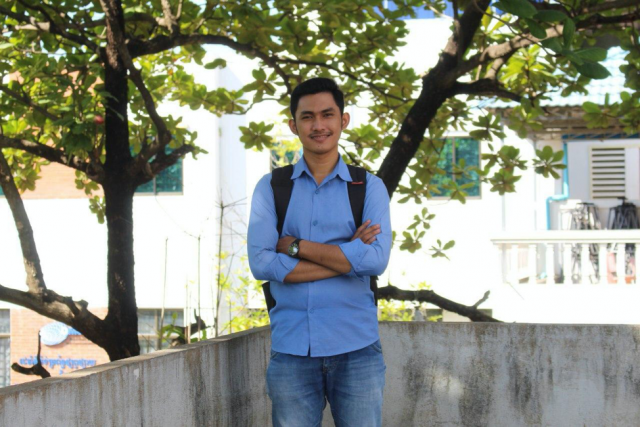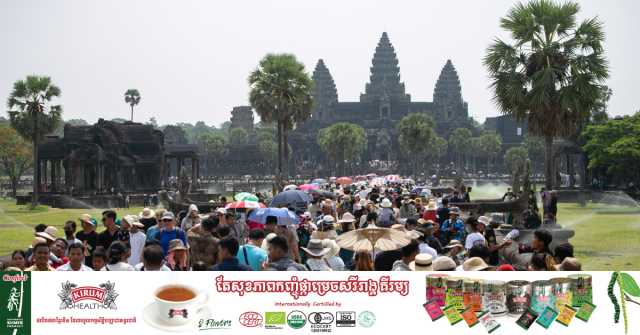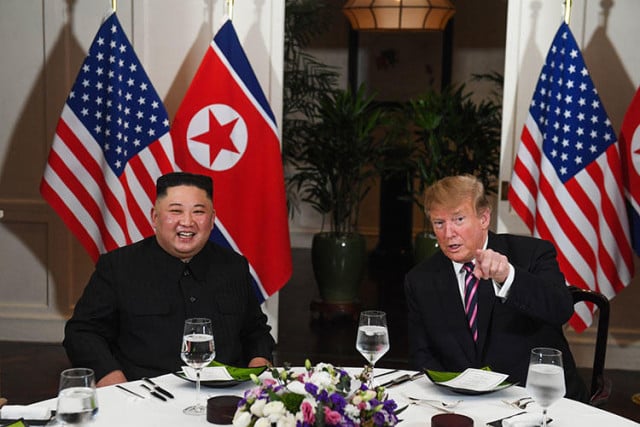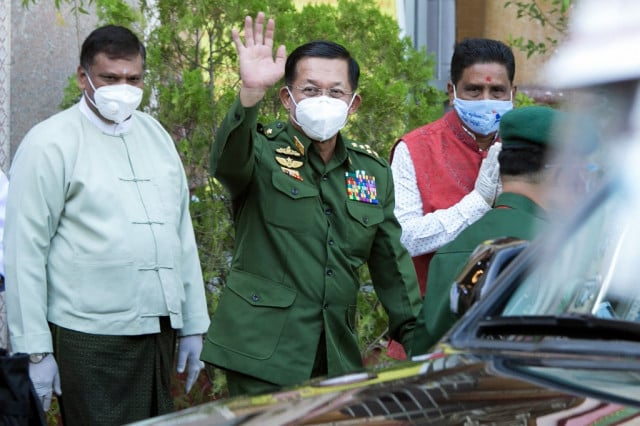Why do I learn French while others are less interested?

- Him Imrorn
- July 25, 2020 7:00 AM
Neuv Chansereyvuth, who completed his high school baccalaureate program as a Grade A student in 2017, is now studying to obtain a Bachelor of Arts in French at the Royal University of Phnom Penh (RUPP). He currently is in second year at the Institute of Foreign Languages’ Department of French at RUPP while also studying at the Royal University of Law and Economics. Him Imrorn interviewed him to find out why he chose to pursue a degree in French language.
Him Imrorn: What did motivate you to study for a bachelor's degree in French, which may be less popular than some other languages nowadays?
Neuv Chansereyvuth: The reason I chose to learn French is that I liked it since I was a child. I have been learning French since high school. Moreover, I think French is a language being spoken in an enormous market but with less competition.
In addition, Cambodia has been one of the French-speaking countries since the Sangkum Reast Niyum era [in the 1950s and 1960s, and had been under French administration since the 1860s]. So…there are a lot of historical documents written in French.
Him Imrorn: Who did motivate you to learn French? And what do you want to do as a career in the future?
Neuv Chansereyvuth: I got the encouragement from my grandfather who was a French teacher, and my brother…because he thought that by learning French I might have a better future.
Basically, I want to study law in France in the future, and it is a bridge that allows me to get to know the world and have a better interaction with other people.
Him Imrorn: You said that knowing French can be a bridge for you to get a chance to study law in France. But why didn’t you just take a short course instead of a bachelor's program?
Neuv Chansereyvuth: I think learning at a private school can only be helpful for me to improve my speaking the language and normal communication. However, for specialized fields like law, I need to enroll in a bachelor's program, which provides more in-depth knowledge in terms of terminology for both history and law.
Him Imrorn: In your case, what are the difficulties and also joys of learning French? And how do you manage to deal with the difficulties?
Neuv Chansereyvuth: For me, learning French presents many obstacles. We need to read a great deal of news to do research, and the most difficult issue is finding the opportunity of using the language because there are not many French speakers today in Cambodia. Also, learning French is very intricate both in terms of grammar and vocabulary because, in French, we have to distinguish between two genders, odd words and the transformation of verbs.
However, it is also fun to learn about French culture and it makes it easier to do research in historical and political documents as most of the documents in the archives [from the 1860s on] were written in French.
As a solution…since there are not many French speakers in Cambodia, I usually speak French with my friends every time I go to school and I communicate with my French friends through social media such as Facebook and Instagram.
Him Imrorn: In the Cambodian context, the most popular foreign languages…are English and Chinese due to the fact that the number of Chinese nationals in Cambodia is increasing. However, you chose French. What is your message to those who want to learn and value the French language and those who think French is less important?
Neuv Chansereyvuth: It is true that Chinese and English are very popular in Cambodia. However, with this growth, people will be more interested and the Chinese-speaking market will be declining. Therefore, the market of the French language will remain stable whether in the country or abroad because Cambodia has a good relationship with France, which always provides many scholarships every year.
Also, I think that in terms of foreign languages, French is one of the most important after English because the spread and prestige of French-speaking is so great. After all, French is the third most-spoken language in the world. And in the meantime, French language is important for young Cambodians due to the fact that a great deal of Cambodia’s history was recorded in French.















